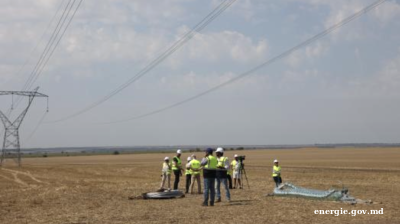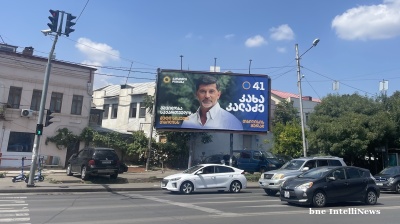Politics
Bosnia & Herzegovina is heading for a year of faster economic growth thanks to strengthening private consumption, but political tensions could harm the otherwise positive outlook in 2019.
The country held a general election in the autumn of 2018, but so far a government has not been formed either at state level or in Bosnia’s bigger entity, the Muslim-Croat Federation.
Bosnia is comprised of two autonomous entities — the Federation whose population is mainly made up of Bosniaks and Bosnian Croats, and the Serb-dominated Republika Srpska. Each entity has its own parliament, government and president. The country also has state-level institutions.
Although the nationalists won more support than any other party in the October 2018 elections, their opponents are trying to form a broad coalition and could become a significant factor in Bosnian politics. However, no coalition can form a majority at state level without at least one of Bosnia’s main nationalistic parties — the Bosniak Party of Democratic Action (SDA), the Serb Alliance of Independent Social Democrats (SNSD) and Croatian Democratic Union of Bosnia & Herzegovina (HDZ BiH). Moreover, the SNSD and HDZ have already signed a coalition agreement.
Despite internal tensions, the country’s newly sworn in presidency has signed a declaration setting EU membership as its top foreign policy priority in a rather surprising agreement considering that one of its members — the Serb leader Milorad Dodik — has been known for his secessionist, pro-Russian and pro-Serbian ideas.
Again progress towards achieving candidate status has been held back by political infighting; the EU can only move Bosnia forward towards official candidate status if the country finally sends answers to the union’s additional questions following the submission of its questionnaire in February.
Proponents of Bosnia’s eventual accession to the bloc point out that Bosnia is one of the countries in the region with the highest level of political risk, and there are even fears that a deterioration in the situation could spark another military conflict in the Balkans without prospects of joining the EU.
Another possible source of tension that could delay key reforms in Bosnia is the activation of Bosnia’s Membership Action Plan (MAP) by Nato in December 2018. The question of Nato membership is the topic of a major dispute between Bosnia’s two entities. While the Federation wants to join Nato as well as the EU, Dodik, the former president of Republica Srpska who is now a member of the state-level presidency, openly opposes Nato membership and claims close ties with Russia and Serbia instead.
Economics
Most international institutions expect that Bosnia’s economic growth will accelerate to 3.5% in 2019 from an estimated 3% in 2018. According to the European Bank for Reconstruction and Development (EBRD), investment in public roads is expected to play a more growth-supportive role in the coming period, if the country carries out the necessary reforms and the political situation does not worsen.
Bosnia’s Directorate for Economic Planning has a slightly more positive projection for economic growth, which it expects to rise by an annual 3.6% in 2019 and 2020. Domestic demand, backed by the constantly falling unemployment level in Bosnia, is seen as the main driver of the economic growth.
Inflation is seen rising to 1.8% in 2019 from an expected 1.8% in 2018.
Finance
The lack of clarity on Bosnia’s political situation will once again lead to delays of key reforms and could result in the country struggling financially for another year without a deal with the International Monetary Fund (IMF).
Bosnia’s deal with the IMF was put on hold in 2017 due to unfulfilled obligations, but was unfrozen at the end of December and in February Bosnia received the second loan tranche. However, in July, the IMF decided to postpone the conclusion of its review of Bosnia’s third loan tranche as the country had failed to complete its obligations. Bosnia’s lack of discipline and will to implement the pledged reforms thus cost the country the cheap loan once again.
Efforts to attract funding on the international capital markets have struggled. Republika Srpska placed its first Eurobond on the Vienna Stock Exchange on June 21, but it did not succeed in selling the whole €200mn issue.
Business
FDI in 2019 is forecast to rise to 2.3% of GDP, with the planned privatisation of state-owned stakes in two telecoms operators, BH Telekom and HT Telekom. Hydropower plants that have been delayed due to administrative hurdles are also expected to start next year.
Meanwhile, plans for a new unit at the Tuzla coal-fired power plant appear to have stalled. In July 2018, Bosnia’s state aid body approved a guarantee for the €614mn loan from China’s Exim Bank to finance the project. However, environmental NGOs have objected that the guarantee that is supposed to be provided by the Federation’s government is not state aid and might be illegal. This was backed up by the Energy Community secretariat, which has urged the parliament of the Federation to halt its plans to approve the guarantee.
Features

Is Donald Trump driving India further into China's embrace?
Since taking office, the Trump administration has introduced sweeping trade measures that at times appear to target India in particular.

World GDP forecasts raised, but US slowdown anticipated - Fitch
Global growth is now forecast to be 2.4% in 2025, up 0.2pp since June but a sizeable slowdown from 2.9% last year and below trend.

Moldova’s dramatic energy sector transformation
Chisinau ended decades of dependence on Russia in just four years — but will the upcoming general election derail the remaining reforms?

Local elections loom in Georgia
Georgia’s October 4 municipal elections are already mired in controversy amid a partial opposition boycott and mounting state repression, as major international observers refuse to participate.




